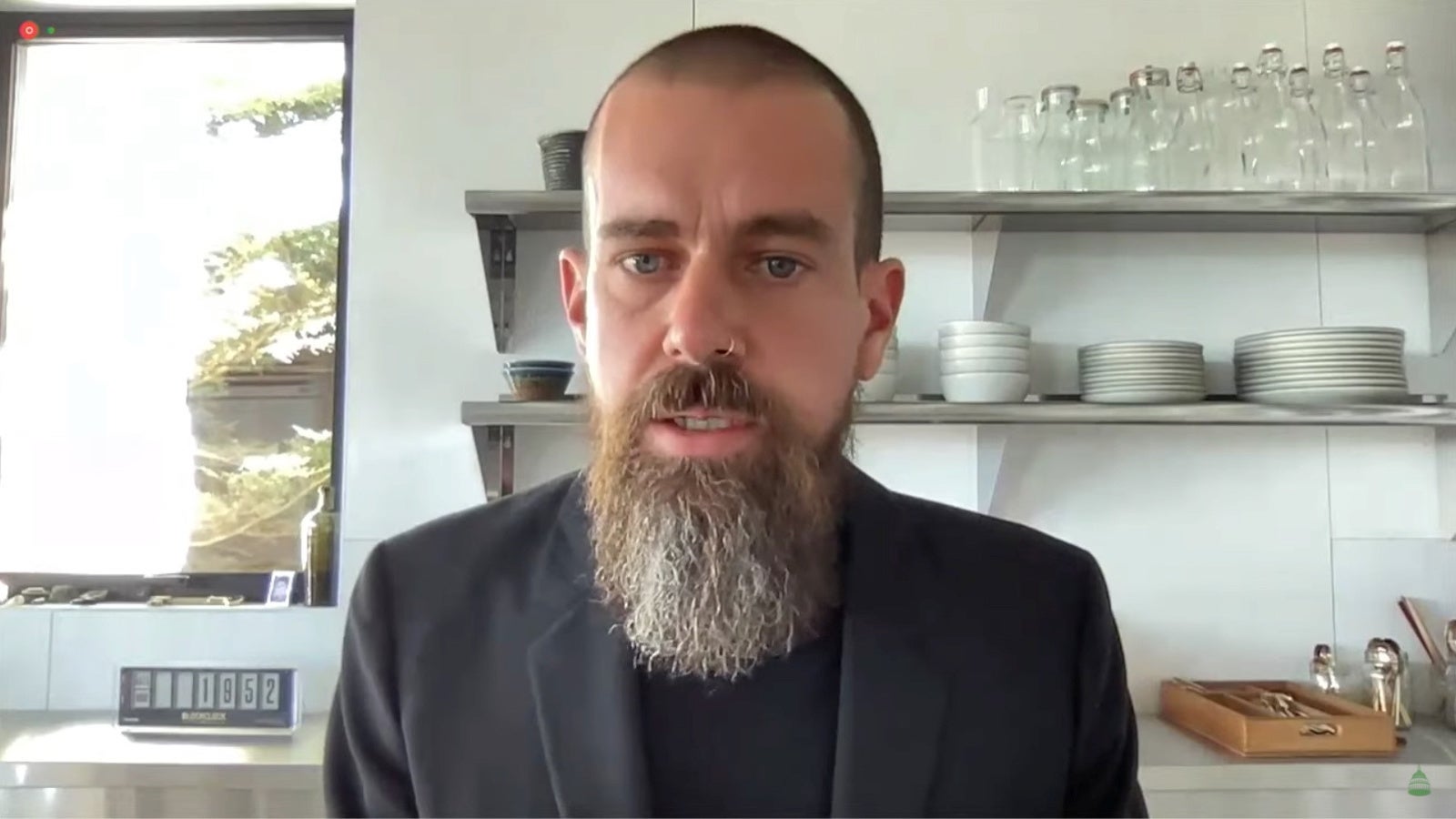Hey there, Block Head
Not many people want to be known as blockheads. But Jack Dorsey does.


Not many people want to be known as blockheads. But Jack Dorsey does.
Last week, digital payments company Block (formerly known as Square) announced in a regulatory filing that Dorsey had changed his title from CEO to Block Head. Dorsey’s new joke job title puts him in the company of Elon Musk, who last year submitted paperwork making him the official “Technoking” of Tesla as well as its CEO.
Dorsey and Musk have a lot in common besides a shared predilection for goofy appellations. Most importantly, Musk is acquiring Twitter, the social-media company that Dorsey co-founded and previously led as CEO. They’re both billionaires and crypto-enthusiasts with colorful (some might say eccentric) personalities. And in both cases, their choice to mess with the CEO title reveals something deeper about their approaches to leadership.
Dorsey has long been outspoken about his distaste for the pomp and circumstance associated with official titles. Back in 2012, he tweeted, “Titles, like ‘CEO,’ get in the way of doing the right thing. Respect to the people who ignore titles, and fight like hell for what is right.'”
History suggests that his objections lie not just with the title of CEO, but also with the responsibilities and hierarchical decision-making traditionally associated with the role. In 2020, The Wall Street Journal described his leadership style at both Twitter (which he left last fall) and at Block as “hands-off to the extreme, delegating most major decisions to subordinates.” Among the reasons he was fired from his first stint as Twitter CEO in 2008 was his habit of ducking out from work early to go to yoga class. (He came back to head Twitter for the second time in 2015.)
Whether one interprets Dorsey’s managerial habits as absenteeism or strategically decentralized leadership is a matter of debate. Dorsey himself says it’s the latter: “My job is not to make decisions,” he told BNN Bloomberg in 2019. “My job is to ensure decisions are being made.” At Twitter and Block, he said, he wanted to ensure that “we don’t have dependency on one person, including myself.”
Musk, who also serves as CEO of SpaceX, has been equally dismissive about the importance of lofty job titles. Speaking at a conference last year, he said that the only titles that matter at a company are “president, secretary, and treasurer,” since the Internal Revenue Service requires corporations to list those officers. “All of these other titles are just basically made up,” Musk said, adding that he had chosen Technoking as a joke.
Unlike Dorsey, Musk hasn’t publicly championed decentralized leadership. But he has talked openly about his distaste for the CEO role. “I don’t want to be a CEO, I tried hard not to be the CEO at Tesla, but I had to or it would die,” he said during public testimony in 2021. “I rather hate being a boss. I’m an engineer.”
Neither Musk nor Dorsey, then, have much reverence for the role of the CEO. That doesn’t necessarily mean that either man is better at steering their companies than someone who leads the old-fashioned way. But in choosing to be the Block Head and the Technoking, they’re signaling that they’re not so attached to being CEO in the first place. —Sarah Todd
Tag yourself
If you could pick your own job title, what would it be? Send us your chosen monikers at [email protected].
Five things we learned this week
👵 China wants to raise its retirement age. Right now, men can retire at 60, while women in managerial roles are eligible at 55—a problem for a country with a rapidly aging population.
🇱🇹 Lithuania is giving some parents a four-day workweek. Public employees with kids under 3 will be able to work 32 hours a week without a reduction in pay.
✊🏾 ✊🏼 ✊🏿 Profitability isn’t the point of antiracism. Diversity efforts that focus on benefits to a company’s bottom line minimize the importance of equality in its own right.
🌴 Just one-third of Americans plan to use all their vacation days this year. Among those planning to take time off this summer, staycations are a popular choice.
😷 Your problems concentrating at work could be long covid. Flexible schedules are one way that companies can support employees with the lingering illness.
Finding the right imbalance

You could be forgiven for thinking that holding onto debt—any debt—is a bad thing. But countries don’t have to balance their budgets quite the same way individuals do, which makes the conversation about national debt more nuanced—and often more contentious. 🎧 Learn more in this week’s episode of the Quartz Obsession podcast.
Listen on: Apple Podcasts | Spotify | Google | Stitcher
30-second case study
Of the roughly 1 million Americans who have died from covid, about 150,000 have been nursing home residents. But not all nursing homes suffered losses at the same devastating scale, and researchers are working to untangle the myriad reasons why. A new study adds an important piece to the puzzle: It finds that unionized nursing homes were safer places to be during the height of the pandemic.
The study looked at data from more than 13,000 US nursing homes—that is, nearly every facility in the 48 continental states—and found that overall, covid death rates in nursing homes with a unionized workforce were 10.8% lower than death rates in nursing homes with a non-unionized workforce. Unionized staff were also 6.8% less likely to be infected compared with their non-unionized counterparts during that period
By extrapolation, had all US nursing homes been unionized during the one year studied (beginning in June 2020), some 8,000 resident lives could have been spared, the authors report.
The takeaway: The study doesn’t prove that unions cause better health outcomes. But it does offer theories about why there’s a link between the two.
“Unions were fighting to protect nursing home workers,” says Adam Dean, a professor of labor politics at George Washington University, “and in doing so, they not only lowered worker infection rates, but also had these broader benefits for society, namely, reducing resident mortality rates.”
For one thing, unions made heroic efforts to keep their members from getting sick at work, pushing for personal protective equipment for workers as well as paid sick days. Both measures can help contain the spread of the virus.
Unionized employees may have also been more likely to speak up against hazardous practices, or to insist on isolating residents that tested positive, without fearing for their jobs or suffering other forms of retribution, the authors argue.
“It’s pretty simple,” Rosalind Reggans, a certified nursing assistant in Illinois, told the investigators. “The safer we are, the safer they are.”
Join the movement to make business better
In case you missed it, Quartz dropped our paywall! But we need your support to ensure that our journalism remains free to everyone invested in making the contemporary workplace more innovative, inclusive, and sustainable. To become a member, use my personal staff code SARAH50 and get 50% off.
You got The Memo!
Today’s Memo was written by Sarah Todd and Lila MacLellan and was edited by Francesca Donner. The Quartz at Work team can be reached at [email protected].
Did someone forward you this email? Sign up for future installments here. Get the most out of Quartz by downloading our app and becoming a member.